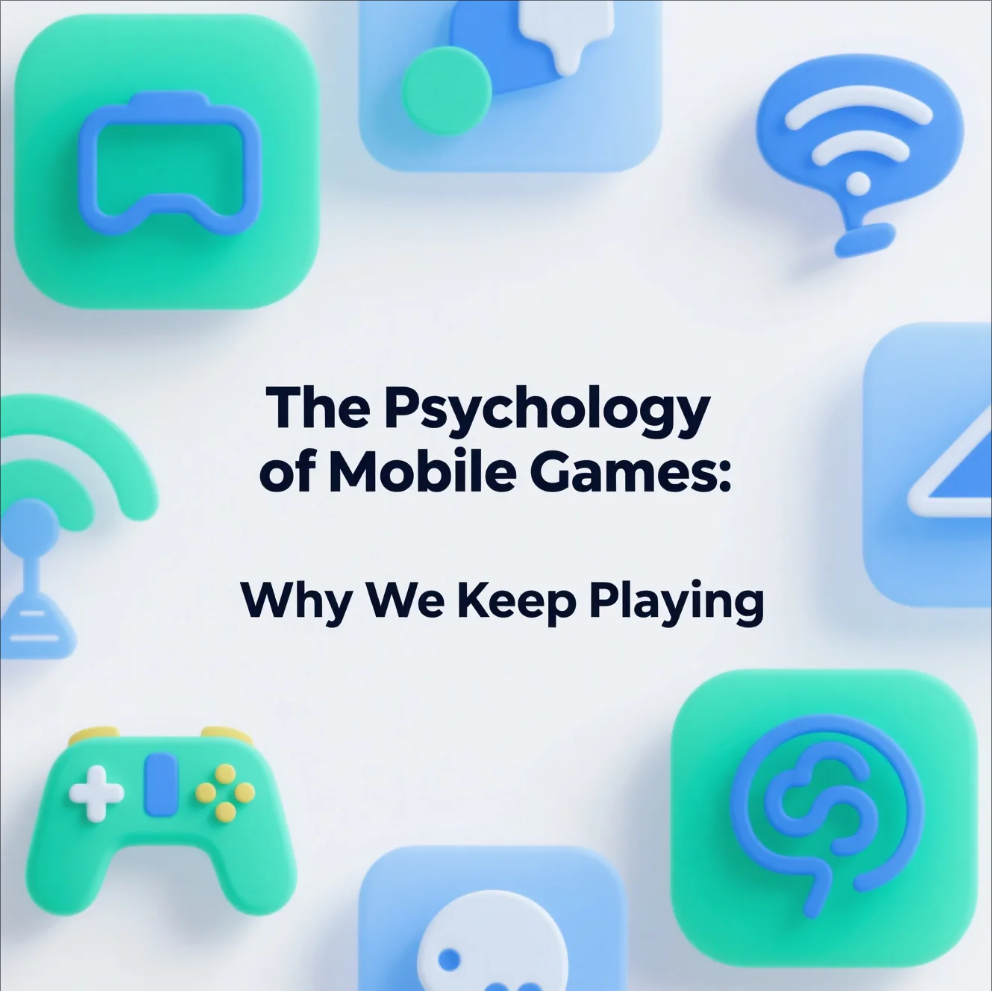Mobile games have become a global phenomenon. From quick puzzle apps to immersive RPGs, millions of people spend hours playing daily. But what makes these games so addictive? The answer lies in the psychology of mobile gaming—the clever design strategies and human behaviors that keep us coming back for “just one more round.”
🧠 1. Instant Rewards and Gratification
Mobile games often provide immediate rewards—coins, gems, or points. This taps into our brain’s dopamine system, making us feel accomplished and encouraging us to keep playing.
🎁 2. The Power of Progress
Leveling up, unlocking achievements, and completing challenges create a sense of progress. Humans love measurable growth, and mobile games make it visible and satisfying.
⏳ 3. Time-Based Mechanics
Ever noticed games with “energy bars” or timers? These encourage players to return later, creating a cycle of anticipation and habit-building.
👥 4. Social Connection
Multiplayer modes, leaderboards, and sharing features tap into our desire for community and competition. Winning against friends or joining teams strengthens engagement.
🌀 5. Escapism and Stress Relief
For many, mobile games offer an escape from daily stress. Whether it’s five minutes on a break or an hour before bed, games provide relaxation and fun.
🌟 Final Thoughts
The psychology behind mobile games is a mix of reward systems, progress tracking, social interaction, and escapism. These design strategies turn simple apps into daily habits, explaining why mobile gaming continues to thrive worldwide.
Recommend:
Tags: GamePsychology, MobileGames, WhyWePlay